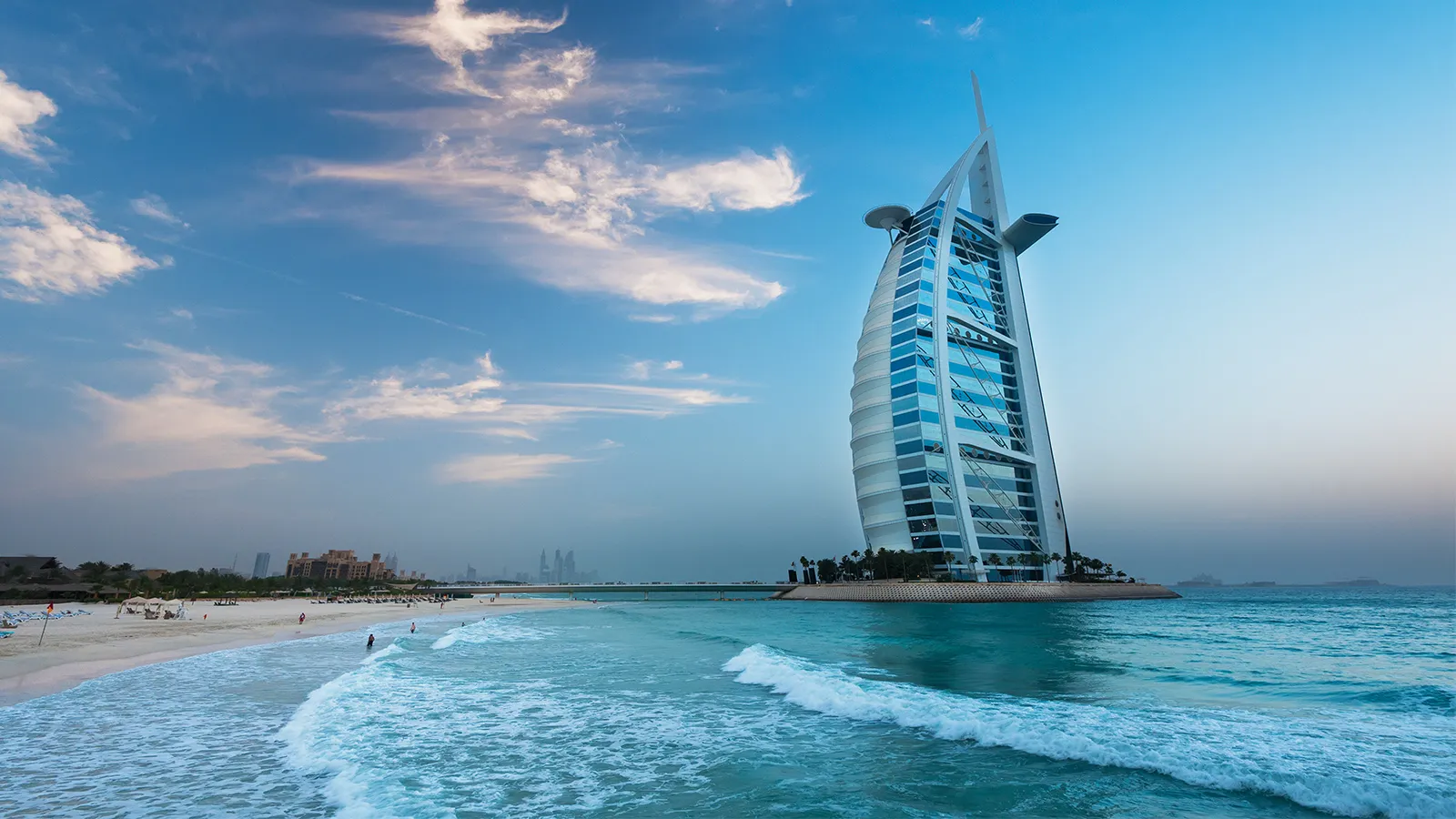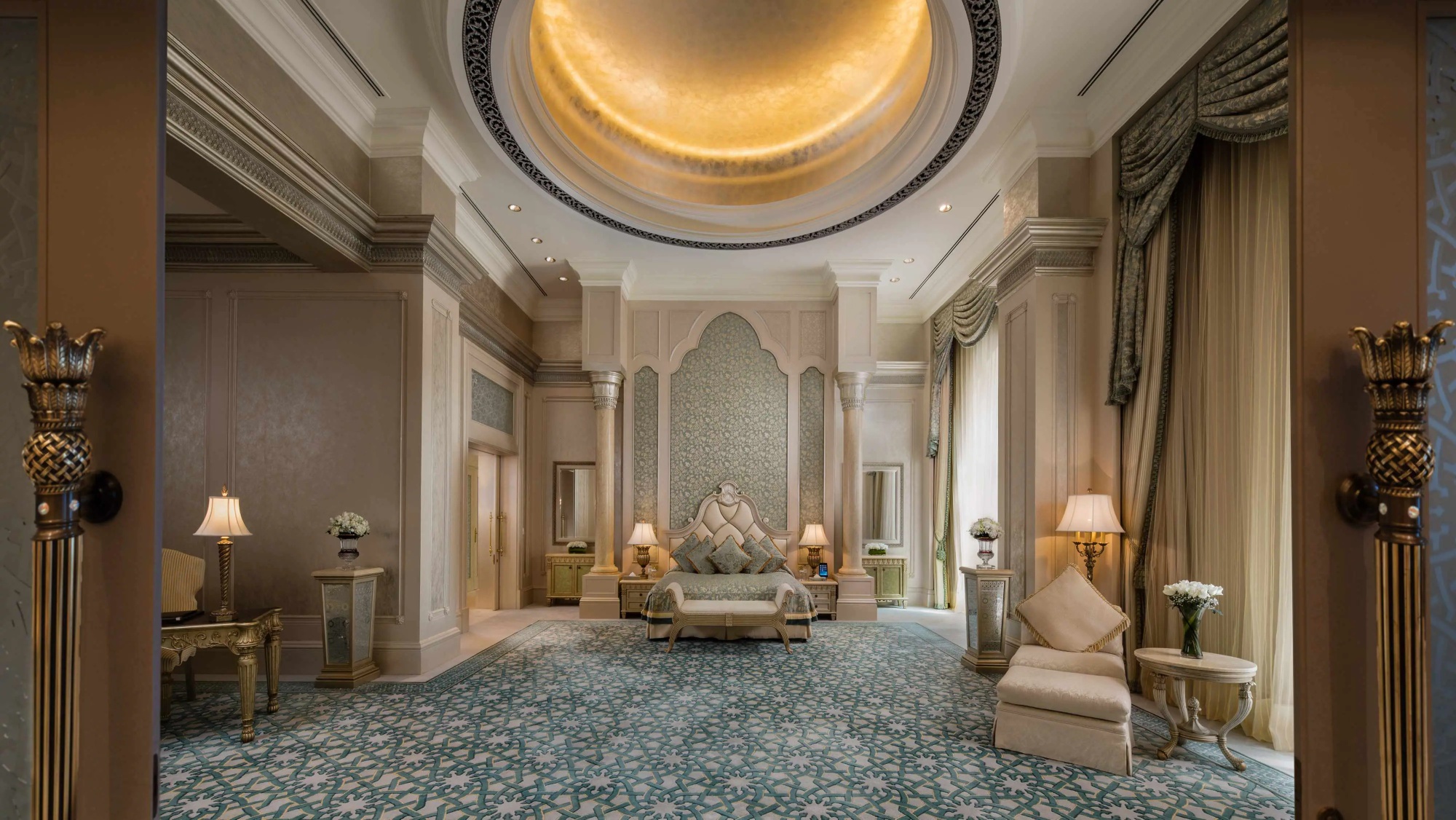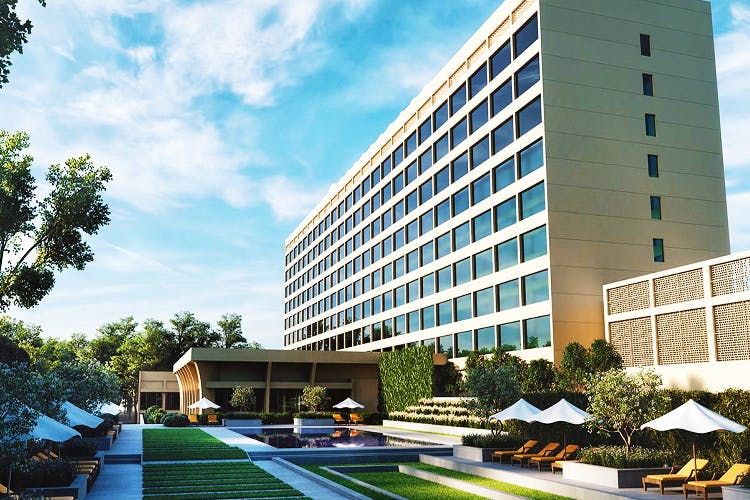When we think of luxury hotels, five stars often come to mind as the pinnacle of opulence and service. But in recent years, a new term has surfaced: the 7-star hotel. For travelers and enthusiasts of fine living, this classification raises questions: Can a hotel really be rated seven stars? How is it different from a traditional five-star hotel? In this article, we’ll dive into the concept of 7-star hotels, separating myth from reality and exploring the luxurious world that surrounds them.
What Do Star Ratings for Hotels Mean?
Before we delve into the concept of a 7-star hotel, it’s important to understand how the star rating system works. Hotel ratings have traditionally ranged from 1 to 5 stars, with each tier representing a different level of service, amenities, and overall quality.
1-Star hotels offer basic accommodation, usually with limited services.
2-Star hotels provide slightly better facilities, such as a small restaurant or better-furnished rooms.
3-Star hotels are mid-range establishments, often with larger rooms, a restaurant, and possibly a gym or pool.
4-Star hotels bring more luxury, including fine dining, concierge services, and well-appointed rooms.
5-Star hotels represent the height of luxury, offering top-tier services, exquisite accommodations, and a wide range of amenities designed to meet every guest’s need.
Where Does the Concept of 7-Star Hotels Come From?

The notion of a 7-star hotel doesn’t originate from any formal rating system. In fact, most hotel rating bodies, such as AAA (American Automobile Association) or Forbes Travel Guide, cap their ratings at 5 stars. The term “7-star” was coined by journalists and guests who were so impressed with the level of luxury and service at certain hotels that they felt five stars simply didn’t do justice.
The term has since been adopted by certain hotels, primarily as a marketing tool, to emphasize their extreme opulence. While no official body awards 7-star ratings, these hotels have become synonymous with extravagant luxury, often providing services and amenities that go above and beyond even the most exclusive 5-star establishments.
Characteristics of a 7-Star Hotel

Though not officially recognized, hotels that claim to be 7-star often offer experiences that redefine luxury. Let’s look at some of the features and services that typically characterize these hotels:
Architectural Marvels
The architecture of 7-star hotels is often breathtaking, designed by world-renowned architects and constructed with no expense spared. These buildings can be iconic landmarks, combining modern design with traditional influences, sometimes representing the cultural essence of their location. The Burj Al Arab in Dubai, with its sail-like structure, is one such example.
Personalized Service
In a 7-star hotel, the service is not just excellent, it’s personalized. Each guest might have access to a dedicated butler who caters to their specific needs and desires, often anticipating them before they are even mentioned. The attention to detail is meticulous, ensuring that every moment of the stay is tailored to perfection.
Exclusive Experiences
What sets 7-star hotels apart is the range of exclusive experiences they offer. From private helicopter tours to VIP access at world-famous events, these hotels strive to give guests once-in-a-lifetime experiences. Some hotels even have their own private yacht or fleet of luxury cars to ensure that guests travel in style.
Opulent Suites
Rooms in these hotels are not just places to sleep; they are luxury sanctuaries. Expect suites that can cover entire floors, complete with living rooms, private gyms, spas, and sometimes even a personal cinema. Every detail is curated, from hand-picked artwork to the finest linens and furniture. Some suites come with gold-plated fixtures or Swarovski crystal embellishments.
Fine Dining and Exclusive Chefs
Gourmet dining is a must, with the finest ingredients flown in from around the world. Many 7-star hotels boast Michelin-starred chefs who create bespoke menus tailored to the tastes and preferences of each guest. Expect multiple restaurants, including rooftop and underwater dining options, as well as private dining rooms.
Advanced Technology
From the moment you check in, cutting-edge technology enhances the guest experience. This can include biometric access to rooms, smart systems that control lighting and temperature via a tablet, and virtual assistants to handle room service and bookings. For those staying in the most luxurious suites, some hotels even provide a personal staff available 24/7 through a custom-designed app.
Unmatched Locations
7-star hotels are often found in the world’s most desirable locations, whether it’s a secluded private island, a spot next to a world wonder, or the heart of a city known for its wealth and glamour. These locations not only add to the allure but often feature breathtaking views that are a key part of the overall luxury experience.
Famous 7-Star Hotels in the World

While many luxury hotels aim to market themselves as 7-star, there are a few that have gained legendary status in this category:
Burj Al Arab – Dubai, UAE
Perhaps the most famous of all 7-star hotels, the Burj Al Arab is an icon of Dubai’s luxury scene. Shaped like a sail, it offers incredible views of the Arabian Gulf and is known for its unparalleled service and opulent interiors, including 24-karat gold leaf accents throughout the property. Guests can arrive via helicopter and enjoy suites that occupy two floors with personal butlers on call.
Emirates Palace – Abu Dhabi, UAE
Another stunning hotel in the UAE, the Emirates Palace is a marvel of Middle Eastern architecture, complete with 114 domes and a private beach. The hotel features rooms adorned with gold and marble, and its level of service is second to none.
Pangu 7 Star Hotel – Beijing, China
Though the name includes “7-star,” this hotel is officially rated five stars. However, its luxury experience is on par with its global competitors. Located near the Beijing Olympic Park, it boasts stunning views, lavish accommodations, and world-class dining.
Town House Galleria – Milan, Italy
This luxury hotel in the heart of Milan’s fashion district was one of the first in Europe to claim 7-star status. Known for its exclusive suites, personalized services, and gourmet dining, it offers a true taste of Italian elegance.
The Mark Hotel – New York, USA
While not officially rated 7-star, The Mark in New York is one of the most exclusive luxury hotels in the world. Known for its penthouse suite, which is one of the largest in the world, the hotel offers guests personalized service and experiences that cater to the upper echelon of society.
Are 7-Star Hotels Worth the Hype?

While the concept of a 7-star hotel may sound incredibly tempting, it’s important to note that the 7-star rating is not an official classification. That said, hotels that fall into this category often deliver on their promise of luxury and exclusivity. Whether they live up to their unofficial 7-star rating depends on individual expectations, but for those who seek unparalleled service, opulent accommodations, and exclusive experiences, these hotels are the epitome of indulgence.
Conclusion
The term “7-star hotel” is largely a marketing construct, but that doesn’t mean it isn’t rooted in reality. While no official hotel rating body uses this classification, the experiences offered by these self-proclaimed 7-star establishments go far beyond the usual definition of luxury. From personalized service to iconic architecture and exclusive locations, these hotels are designed to dazzle even the most seasoned travelers.
For those who can afford it, staying in a 7-star hotel isn’t just about accommodation; it’s about living out a fantasy of ultimate opulence. For the rest of us, it remains a tantalizing glimpse into the world of the ultra-wealthy, where even the highest standards of luxury can be exceeded.
Whether you’re seeking your next dream vacation or simply curious about the world of extreme luxury, these hotels redefine what it means to offer a five-star experience—and then some.
FAQs
1. Are 7-star hotels officially rated?
No, 7-star hotels are not officially rated by any global or national hotel rating body. The highest official rating is typically 5 stars. The term “7-star” is more of a marketing concept used to emphasize the extreme luxury and opulence of certain hotels.
2. What is the difference between a 5-star and 7-star hotel?
While a 5-star hotel offers top-tier luxury services, a 7-star hotel takes the experience to an even higher level. This includes ultra-personalized service, exclusive experiences, architectural masterpieces, extravagant amenities, and unparalleled locations that cater to a clientele seeking ultimate privacy and luxury.
3. How many 7-star hotels exist in the world?
There are only a few hotels that claim to offer a 7-star experience. The most famous examples include the Burj Al Arab in Dubai, Emirates Palace in Abu Dhabi, and Pangu 7 Star Hotel in Beijing, among others. Keep in mind that these hotels are self-designated as 7-star, and the term is not part of an official rating system.
4. Why are some hotels called 7-star when the official rating system stops at 5 stars?
The term “7-star” was first coined by journalists and guests who were so impressed by the service and luxury at some hotels that they felt the traditional 5-star rating wasn’t enough. Hotels that embrace the 7-star label do so to highlight their extreme opulence, which exceeds the expectations of a standard 5-star experience.
5. How expensive is a stay at a 7-star hotel?
A stay at a 7-star hotel can be extremely expensive, ranging from thousands of dollars per night for a standard room to tens of thousands for luxury suites. The most exclusive suites, like those at the Burj Al Arab, can cost up to $25,000 per night or more, depending on the season and services included.
6. What kind of services can I expect at a 7-star hotel?
At a 7-star hotel, guests can expect services such as:
Personal butlers available 24/7
Private chauffeurs or limousine services
Helicopter or yacht transfers
Exclusive access to world-class events
Customized dining experiences with Michelin-starred chefs
Luxurious amenities such as gold-plated bathrooms, private pools, and spas
Advanced technology for personalized comfort and convenience
7. Which is the most famous 7-star hotel in the world?
The Burj Al Arab in Dubai is the most famous 7-star hotel and is often considered the flagship of this luxury classification. Its sail-like architecture, exclusive services, and extraordinary amenities have made it a global symbol of ultra-luxury.
8. Are 7-star hotels available worldwide?
No, 7-star hotels are rare and are only found in a few parts of the world. They are mostly located in cities or regions known for wealth and luxury, such as Dubai, Abu Dhabi, Milan, and Beijing. These hotels are often in iconic locations or exclusive urban settings where luxury is a way of life.
9. Can anyone stay at a 7-star hotel, or is it only for the ultra-wealthy?
While anyone with the financial means can stay at a 7-star hotel, these hotels primarily cater to the ultra-wealthy—celebrities, royals, top business executives, and other high-net-worth individuals. Due to the high cost and exclusivity of these hotels, most guests belong to the top echelons of society.
10. Do 7-star hotels offer regular rooms, or are they all suites?
7-star hotels do offer regular rooms, but even these rooms are more luxurious than the suites at most 5-star hotels. These “standard” rooms feature high-end furnishings, custom-designed interiors, and luxury amenities. Most 7-star hotels, however, are known for their extravagant suites that can cover entire floors and come with private services.
11. Are there any 7-star hotels in the United States?
There are no officially recognized 7-star hotels in the U.S., but some luxury hotels, such as The Mark Hotel in New York or The Ritz-Carlton in certain cities, offer services and experiences on par with 7-star establishments.
12. Is it worth staying in a 7-star hotel?
This depends on what you value in a travel experience. If you seek extreme luxury, personalized service, and exclusive experiences that go beyond the standard luxury hotel stay, then a 7-star hotel might be worth the expense. However, if you are simply looking for comfort, many 5-star hotels offer exceptional services at a more affordable price.
13. Can you visit a 7-star hotel without staying there?
In many cases, non-guests can visit 7-star hotels for dining, spa treatments, or tours, depending on the hotel’s policies. For example, the Burj Al Arab offers afternoon tea and dining experiences that are open to visitors who want to glimpse the luxury without staying overnight. However, access to some areas, like the most exclusive suites or amenities, is restricted to guests.
14. Do 7-star hotels have any environmental or sustainability initiatives?
Some 7-star hotels have made efforts to incorporate sustainable practices, such as using energy-efficient technology, sourcing local and sustainable ingredients for their restaurants, and participating in conservation efforts. However, due to their opulent nature, not all 7-star hotels prioritize sustainability, and guests should inquire about specific initiatives if this is a priority.
15. What sets a 7-star hotel apart in terms of design?
7-star hotels are often architectural masterpieces, designed by world-renowned architects. These hotels aim to be iconic landmarks that reflect both the local culture and cutting-edge design. Interiors are typically adorned with the finest materials, such as rare marbles, gold, crystals, and custom artwork, all curated to offer a stunning visual experience that complements the overall luxury of the hotel.



